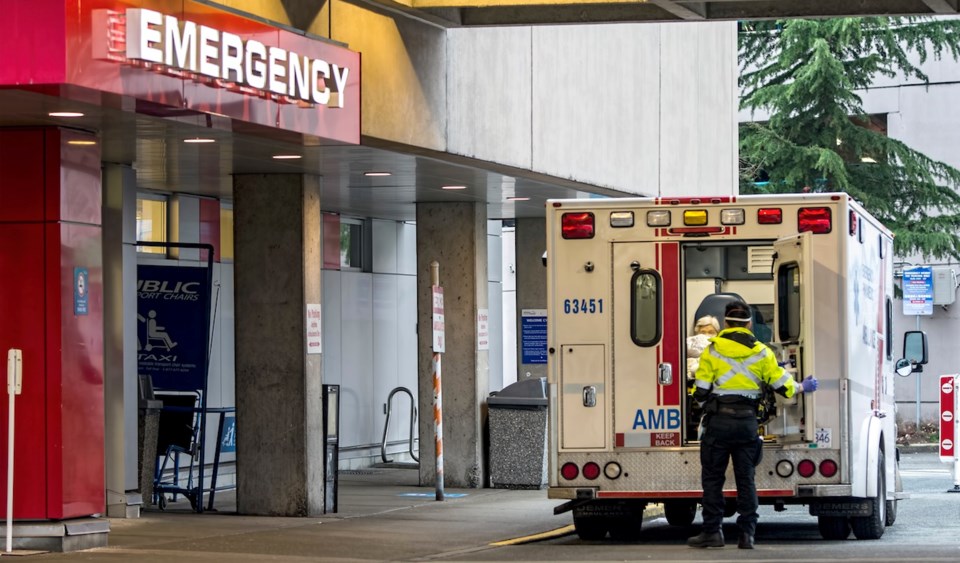The number of COVID-19 patients in B.C. hospitals has fallen below 800 for the first time since Jan. 14, to 787, giving the government confidence to relax health orders at 11:59 p.m. on Feb. 16.
Loosened restrictions are to include:
• indoor personal gatherings returning to normal;
• indoor and outdoor organized gatherings returning to full capacity, with dancing allowed:
• indoor seated events able to return to full capacity;
• fitness centres, adult sports, dance and swimming activities returning to full capacity; and
• restaurants, bars and nightclubs returning to full capacity with no table limits and mingling and dancing allowed.
What will not change is that masks will be required in indoor public spaces, and the BC Vaccine Card will be required for entry into restaurants and entertainment venues.
B.C. Premier John Horgan said restrictions are not being lifted in response to the protests across Canada, which have gained worldwide attention, but rather because of the data, and science.
"We have been driven from the beginning on the best available science to protect people, to keep our economy moving and to ensure that all of us got out of this together," he said.
"We said in early January that we would revisit the question just prior to the Family Day long weekend and that's exactly what we've done."
Family Day is February 21.
B.C. health officials plan to review health restrictions by March 15, and again by April 12, and decide, based on hospitalization rates, what to do.
The last time B.C. had fewer COVID-19 patients in hospitals, on Jan. 14, it was the day after the province changed how it counted COVID-19 patients, and started to include incidental cases. Those infections are in people who went to hospital for a different reason than COVID-19, and then tested positive for the disease while in hospital – often when asymptomatic.
Of those now counted as COVID-19 patients, 124 are in intensive care units (ICUs).
Today's data show that there are a total of 9,260 patients in B.C. hospitals. The province has a total of 9,229 base hospital beds plus 2,353 so-called "surge" beds that were added during the pandemic, and require extra staff resources to fill.
Included in those numbers are 510 base ICU beds, and 218 surge beds. A total of 430 people are in ICU beds for a wide range of reasons.
Hospitals would be even more full if surgeries were not postponed to make extra room. Health Minister Adrian Dix said today that between Feb. 6 and Feb.12, there were 320 non-urgent scheduled surgeries that were put off for a future date.
"We said patients would get calls to rebook their surgeries," he said. "They will. All of them will."
Another two people with COVID-19 died in the past day, raising the province's pandemic death toll to 2,766. That is much lower than the daily average in recent weeks, and it may be because of reporting glitches. In recent weeks, the province has consistently been reporting lower than average death totals on Tuesdays.
It was not immediately clear where the deaths took place. Provincial Health Officer Dr. Bonnie Henry said earlier this month that about 40 per cent of the province's deaths were in seniors' homes.
She has been stressing that elderly people are by far more vulnerable of serious illness and death from the disease.
That is why it is a concern that there are 39 active outbreaks at seniors' homes. One new such outbreak is at the Heights at Mt. View in Victoria, while one newly declared over is at Island View Place in Saanichton.
The number of newly detected COVID-19 cases has fallen to 519, which would be the lowest daily count since December 14. There was what the government called "reconciliation from switching between reporting systems," so that count may be unreliable.
Provincial data show 4,506,631 eligible B.C. residents older than five years have had at least one dose of vaccine, while 4,252,281 are considered fully vaccinated with two doses.
There were 11,618 people given booster, or third, doses of vaccine in the past day, for a total of 2,454,932. That is the lowest number of daily booster shots provided in B.C. since the government started providing that data in early December.
Exactly how many people live in B.C. is a matter of debate. The most updated BC Stats data, from mid-2021, estimated that there are 5,214,805 people in the province. Statistics Canada data released last week relayed that in the 2021 census, B.C.'s population had increased 7.6 per cent between 2016 and 2021, and that the new total number of residents is 5,000,879.
If Statistics Canada's census data is used, Glacier Media's calculation is that slightly more than 90.1 per cent of B.C.'s total population has had at least one dose of vaccine, and more than 85 per cent of the province's total population has had two doses. Nearly 49.1 per cent have had their booster doses.
The difference between vaccinated people getting COVID-19, and unvaccinated people getting the disease, is not nearly as stark in the current Omicron wave as it was during the Delta wave. Unvaccinated people are however still significantly more likely to contract COVID-19 than unvaccinated counterparts, and to land in hospital with the disease.
People who are not fully vaccinated with two doses represent about 15 per cent of B.C.'s total population.
Between Feb. 4 and Feb. 10, people not fully vaccinated accounted for 23.8 per cent of cases, according to government data. Between Jan. 28 and Feb. 10, those individuals accounted for 31.2 per cent of hospitalizations. •



